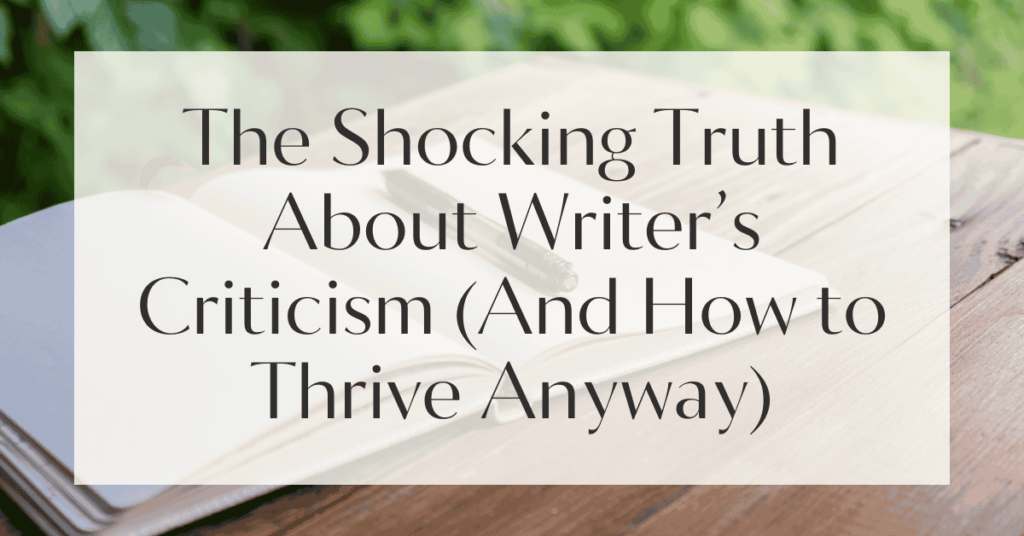Imagine pouring your heart into your writing, only to have it met with criticism. It’s a situation every writer faces, yet the sting never truly fades.
But what if this criticism, often dreaded and sometimes debilitating, could be transformed into a powerful tool for growth?
What if, instead of fearing feedback, writers could learn to thrive because of it?
This guide aims to explore the multifaceted nature of writer’s criticism, offering insights and strategies to help you not only cope with negative feedback but use it as a stepping stone to becoming a more resilient and accomplished writer.
Understanding Writer’s Criticism
At the heart of every writer’s journey lies the unavoidable encounter with criticism.
It is as much a part of the creative process as penning the first word.
Understanding the nature and purpose of criticism can transform it from a dreaded adversary into a cherished ally.
Let us delve deeper into what makes criticism an essential element of writing and how it impacts writers emotionally and professionally.
The Nature of Writer’s Criticism
Criticism in the literary world is as old as writing itself. It serves as a mirror, reflecting not just the strengths but also the weaknesses of a writer’s work.
Often, it’s a mix of subjective opinions and objective analysis. The key is to differentiate between constructive and destructive criticism.
Constructive criticism provides specific, actionable insights that can help refine a writer’s craft.
On the other hand, destructive criticism offers no pathway for improvement, often leaving writers feeling disheartened.
For instance, a critique that points out inconsistencies in character development and suggests ways to enhance it is constructive.
Conversely, a comment like “this story is dull” without any further explanation is destructive and should be taken with a grain of salt.
Why Criticism is Essential for Growth
Embracing criticism is akin to nurturing a garden; while the initial tilling of soil may seem harsh, it is necessary for growth.
Criticism provides a fresh perspective, challenging writers to step outside their comfort zones and view their work through a different lens.
This process of continuous improvement is crucial for any writer aiming to hone their skills and produce compelling narratives.
To grow from criticism, focus on the patterns in feedback. If multiple sources highlight the same issue, it’s worth addressing.
Use these insights to develop a plan for improvement, turning criticism into a roadmap for success.
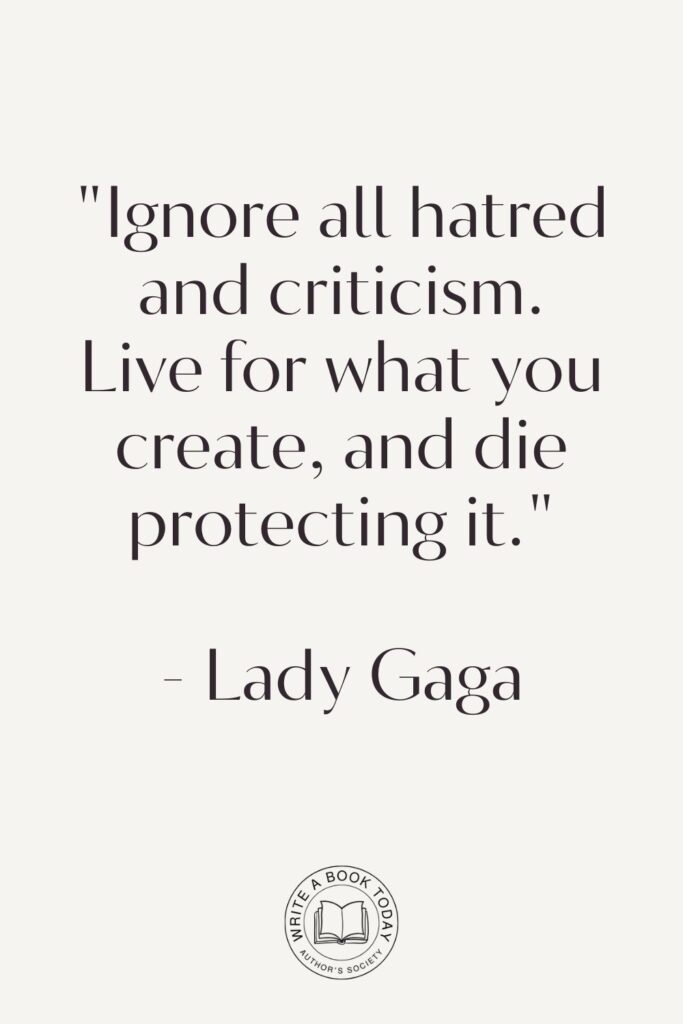
The Emotional Impact of Criticism
Receiving criticism can feel like a punch to the gut, stirring a whirlwind of emotions from self-doubt to frustration.
Writers often pour their souls into their work, making criticism feel personal. Understanding that criticism targets the work, not the individual, is crucial.
It’s important to allow oneself to feel these emotions but not let them dictate one’s response to feedback.
Consider adopting a ritual post-critique, such as taking a walk or engaging in a non-writing activity, to help process emotions before tackling revisions.
This approach not only aids in emotional recovery but also provides clarity when revisiting feedback.
Navigating the Stages of Reaction to Criticism
Just like grief, reactions to criticism often follow a series of stages.
Recognizing and navigating these stages can help writers process feedback more effectively and emerge stronger.
Denial: The Initial Shock
The first reaction to criticism is often denial. Writers may find themselves rejecting the feedback, convinced of their work’s perfection.
This is a natural defence mechanism, a shield against the perceived attack on one’s creative identity. However, dwelling in denial can hinder growth.
Instead, acknowledge the initial shock and give yourself time to absorb the feedback without immediately dismissing it.
Allowing space for the critique to settle can pave the way for more objective reflection.
Anger: Processing Hurt Feelings
Once denial subsides, anger often surfaces. Writers may feel unjustly criticized, leading to defensive reactions.
This stage is crucial, as it can either motivate positive change or lead to destructive behavior.
Channeling this anger into motivation can be powerful. Use it as fuel to prove critics wrong by improving your work.
Remember, many renowned authors faced rejection and criticism before achieving success.
No marketing platform? No social following? No problem!
Publisher Rocket helps you market your debut novel like a pro.
It’s a gamechanger for debut authors – try it today!


Bargaining: Seeking Justification
Bargaining involves seeking justification for one’s work, often by trying to rationalize the critique.
Writers may find themselves questioning the critic’s expertise or comparing feedback with previous praise.
This stage is an opportunity to engage with the feedback constructively. Ask clarifying questions to understand the critic’s perspective better.
This dialogue can provide valuable insights that might not be immediately apparent.
Depression: The Weight of Self-Doubt
As the reality of criticism sinks in, it can lead to feelings of depression and self-doubt.
Writers may question their abilities and consider abandoning their projects. This is the most challenging stage to navigate.
During this phase, it’s essential to remind oneself of past achievements and the joy of writing.
Surround yourself with supportive peers who understand the writing journey.
Their encouragement can provide the strength needed to push through self-doubt.
Acceptance: Embracing Constructive Feedback
Acceptance is the final stage, where writers begin to see criticism as a valuable tool rather than an adversary.
By embracing constructive feedback, writers can make informed decisions about their work, leading to significant improvements.
Create a checklist of actionable steps based on feedback. Prioritise changes that align with your creative vision and discard suggestions that don’t resonate.
This approach ensures that you remain true to your voice while benefiting from external insights.
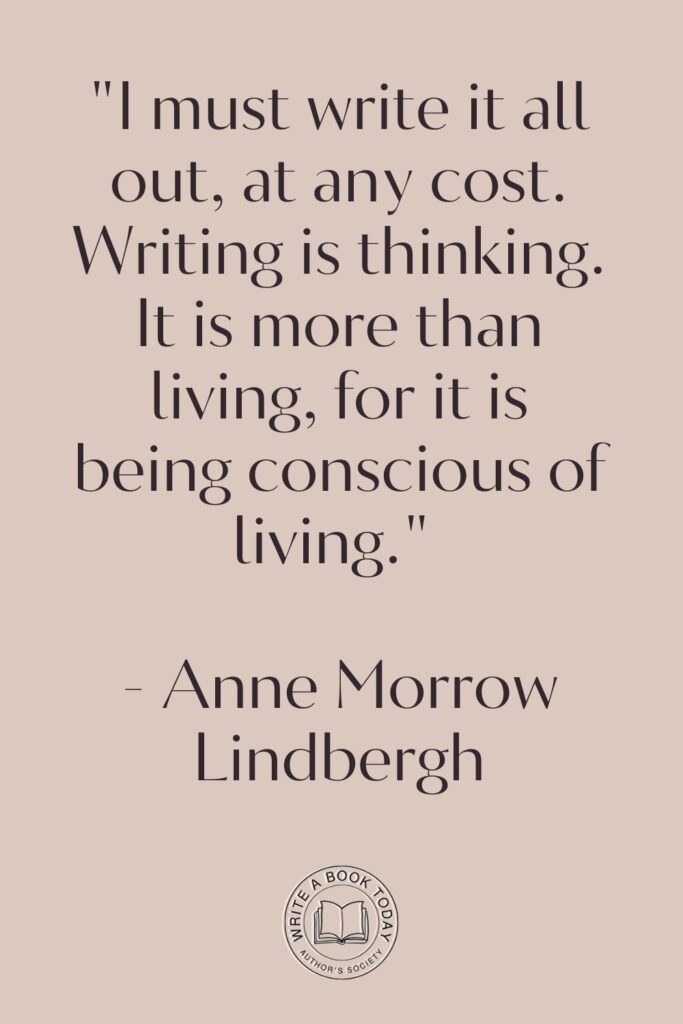
Practical Strategies for Handling Criticism
Equipped with an understanding of the emotional journey, writers can adopt practical strategies to handle criticism effectively.
These strategies are designed to empower writers, transforming criticism into a catalyst for growth.
Developing a Growth Mindset
A growth mindset is the belief that abilities and intelligence can be developed through dedication and hard work.
For writers, this means viewing criticism as an opportunity to learn and improve rather than a reflection of one’s limitations.
By fostering a growth mindset, writers can embrace feedback with curiosity and resilience, continuously striving for excellence in their craft.
Separating Personal Identity from Work
One of the biggest challenges writers face is separating their personal identity from their work.
It’s important to remember that criticism is directed at the piece, not the person behind it.
Practice detachment by viewing your work as a separate entity. This perspective allows for more objective analysis and reduces the emotional impact of criticism.
The Importance of Timing in Receiving Feedback
Timing plays a critical role in how feedback is received and processed.
Receiving criticism at the wrong moment, such as when emotionally vulnerable, can amplify its negative effects.
Choose to review feedback when you’re in a calm and receptive state of mind.
This timing ensures that you’re better equipped to handle criticism constructively.
Asking Questions for Clarity
Criticism can sometimes be vague or unclear, leaving writers unsure of how to proceed.
Asking questions for clarity can bridge this gap, providing a deeper understanding of the critique.
Don’t hesitate to seek clarification from the critic.
This dialogue not only enhances comprehension but also demonstrates a willingness to engage with feedback constructively.
Google Docs is for notes. Scrivener is for novels. Upgrade your writing game and try it for free today!

Building a Supportive Network of Readers
A supportive network of readers can be invaluable in a writer’s journey.
These individuals offer honest feedback while providing encouragement and understanding.
Surround yourself with fellow writers, mentors, or trusted friends who can offer constructive criticism.
Their support can provide the motivation needed to persevere through challenges.
Transforming Criticism into Actionable Steps
Turning criticism into actionable steps is a crucial skill for writers.
By creating a plan of action, writers can systematically address feedback and enhance their work.
Creating a Revision Plan
A revision plan is a structured approach to implementing feedback.
It involves breaking down critiques into manageable tasks and prioritizing changes based on their impact on the narrative.
Develop a checklist of revisions, focusing on areas that align with your creative vision.
This organized approach ensures that feedback is addressed systematically, leading to a polished final product.
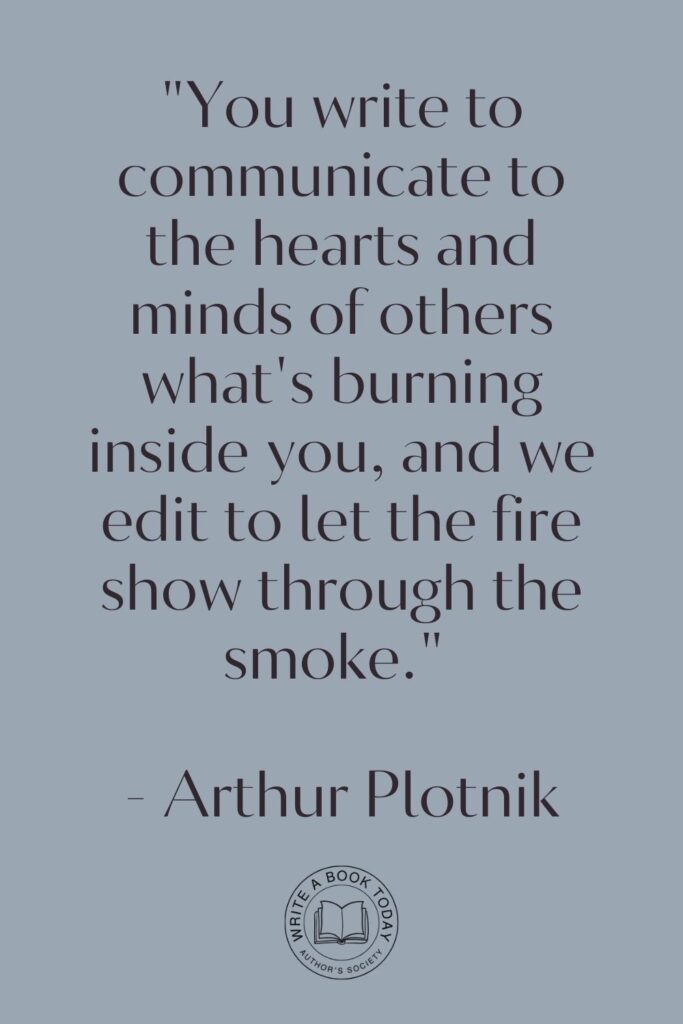
Identifying Patterns in Feedback
Patterns in feedback can reveal recurring issues in a writer’s work.
By identifying these patterns, writers can address underlying problems and make significant improvements.
Create a table to track feedback across multiple critiques. Note common themes or suggestions, and prioritize addressing these areas in your revisions.
| Feedback Source | Common Themes | Actionable Steps |
|---|---|---|
| Beta Reader 1 | Character Development | Enhance backstory |
| Beta Reader 2 | Pacing Issues | Tighten narrative flow |
| Editor | Dialogue Realism | Incorporate natural speech patterns |
Balancing Multiple Perspectives on Your Work
Writers often receive conflicting feedback from different sources.
Balancing these perspectives requires discernment and a clear understanding of one’s creative vision.
When faced with conflicting feedback, prioritize suggestions that resonate with your vision.
Trust your instincts while remaining open to diverse perspectives, ensuring that revisions enhance rather than compromise your work.
Recognising the Value of Constructive Criticism
Constructive criticism is a gift that can elevate a writer’s work to new heights. Recognizing its value is essential for personal and professional growth.
Differentiating Between Constructive and Destructive Criticism
Not all criticism is created equal.
Understanding the difference between constructive and destructive criticism is crucial for writers seeking to improve their craft.
Constructive criticism offers specific, actionable insights, while destructive criticism focuses on negativity without providing solutions.
By discerning between the two, writers can focus on feedback that fosters growth.
Learning to Ignore Unhelpful Feedback
Unhelpful feedback can be a distraction, leading writers away from their creative path.
Learning to ignore such feedback is a valuable skill that preserves one’s artistic integrity.
Trust your instincts and remain true to your vision.
Discard feedback that doesn’t align with your goals, and focus on critiques that offer genuine opportunities for improvement.
Feeling lost with your debut novel?
Fiverr Pro connects you with expert editors, designers, and marketers – everything you need to get your book ready for success!

Harnessing Criticism as a Catalyst for Creativity
Criticism, when embraced, can become a powerful catalyst for creativity.
By using feedback to fuel innovation, writers can push the boundaries of their craft.
Using Criticism to Fuel Your Writing
Criticism can ignite a creative spark, inspiring writers to explore new ideas and approaches.
By viewing feedback as a source of inspiration, writers can infuse their work with renewed energy and originality.
Challenge yourself to experiment with new techniques or genres in response to criticism.
This exploration can lead to unexpected breakthroughs and enrich your writing journey.
Writing Through the Pain of Criticism
Writing through the pain of criticism requires resilience and determination.
It’s about persevering despite setbacks and using adversity as a stepping stone to success.
Whenever criticism feels overwhelming, take a break and engage in activities that rejuvenate your spirit.
Return to writing with a fresh perspective, allowing creativity to flourish even in challenging times.
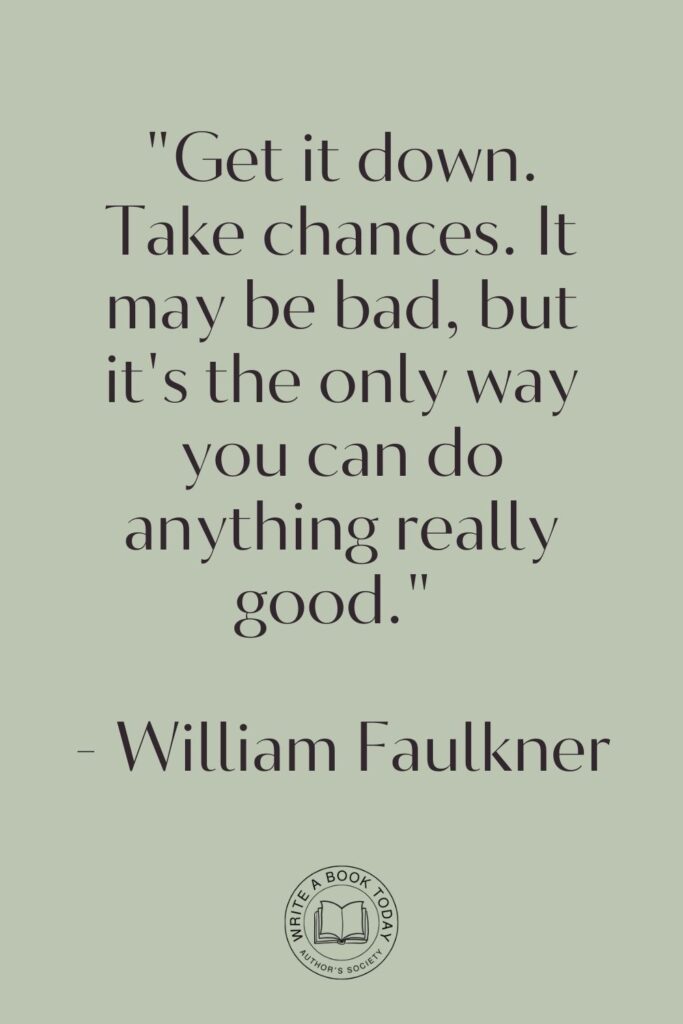
Celebrating Progress and Growth as a Writer
Amidst the challenges of criticism, it’s essential to celebrate progress and growth.
Recognizing achievements, no matter how small, can boost confidence and motivation.
Acknowledging Achievements in Your Writing Journey
Every writer’s journey is marked by milestones, both big and small.
Acknowledging these achievements fosters a sense of accomplishment and inspires continued growth.
Create a list of your writing accomplishments, from completing a challenging chapter to receiving positive feedback.
Reflecting on these successes can provide motivation during moments of doubt.
Finding Joy in the Process of Writing
Ultimately, writing is a journey filled with both trials and triumphs.
Finding joy in the process, rather than fixating solely on the outcome, is key to sustaining passion and creativity.
Embrace the writing process as a journey of discovery.
Celebrate the act of creation itself, and let the joy of storytelling be your guiding light, even amidst the inevitable challenges of criticism.


